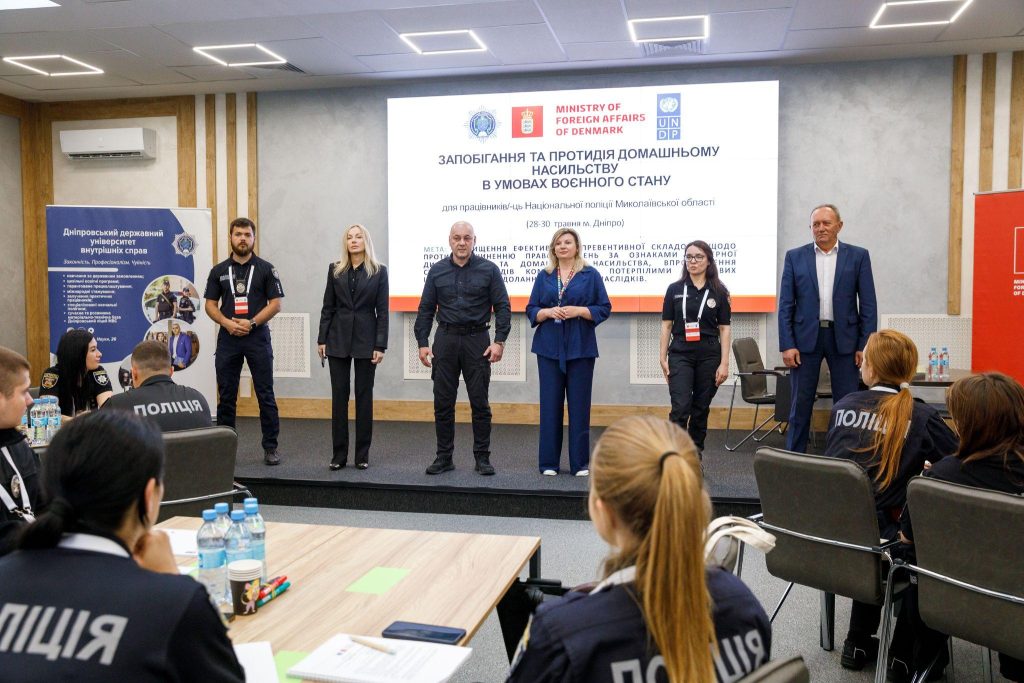The event focused on enhancing the skills of community police officers, Educational Security Service employees, and patrol officers in identifying and responding to domestic violence.
The training was organized and conducted by Dnipropetrovsk State University of Internal Affairs with the support of the United Nations Development Programme (UNDP) in Ukraine and the financial assistance of the Government of Denmark.
The training was opened by First Vice-Rector of DSUIA Ihor Mahdalina, Rector’s Assistant on Gender Issues, Doctor of Law, Professor, Honored Lawyer of Ukraine Larysa Nalyvaiko, and UNDP Public Safety Specialist in Ukraine Svitlana Ryzhkova.
The main objective of the event was to strengthen coordination and cooperation among law enforcement agencies to protect individuals who have experienced domestic violence. Special attention was paid to developing an effective support mechanism for survivors, considering the challenges of martial law.
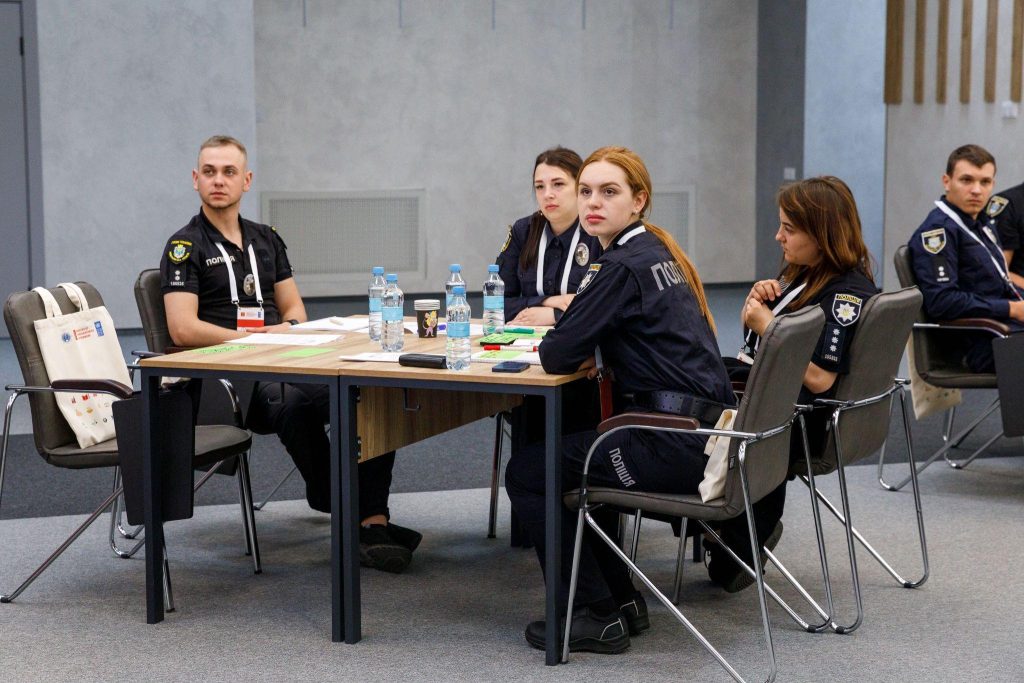
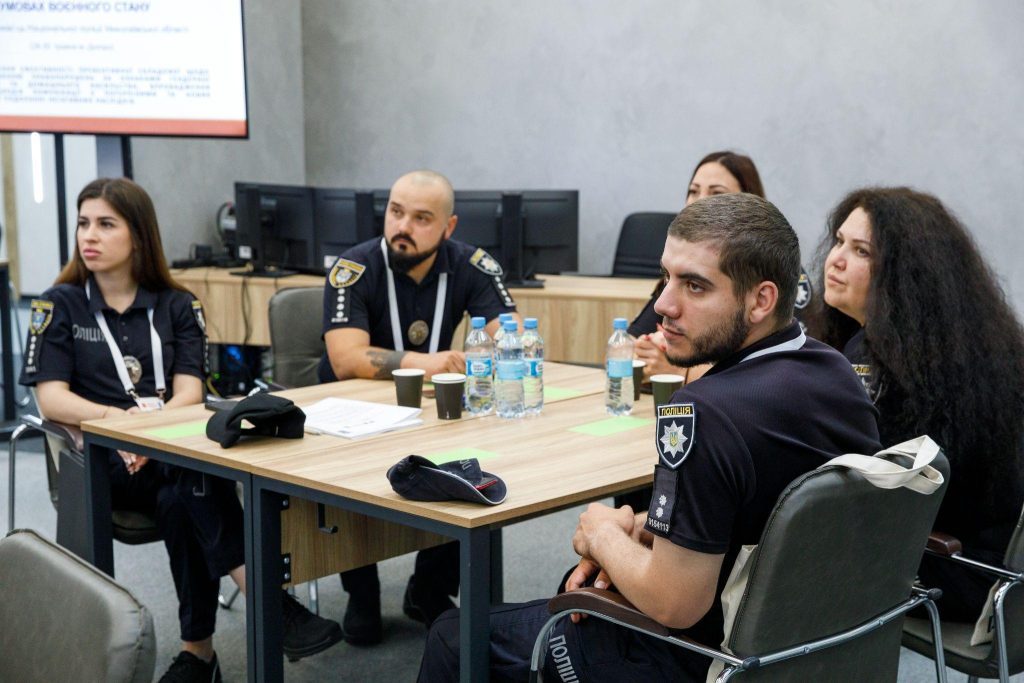
The target audience of the training included officers of the National Police from Mykolaiv region: juvenile prevention officers, Educational Security Service representatives, community police officers, district inspectors, patrol officers, and domestic violence response officers.
The sessions were delivered by experts from DSUIA: Associate Professor of the Department of Criminal Procedure, PhD in Law, Police Major Alina Harkusha, and Senior Lecturer of the Department of Administrative Law and Procedure, domestic violence prevention specialist Mykola Repan.
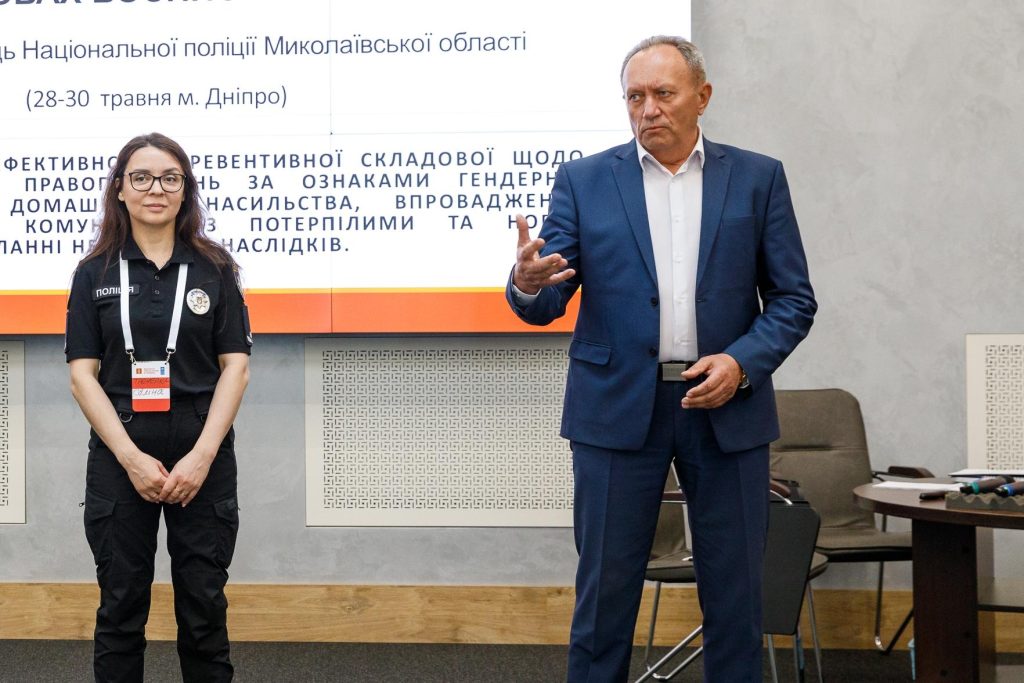
The training was held in the format of thematic sessions, during which participants explored key provisions of national legislation on preventing gender-based and domestic violence, mechanisms for assisting survivors, restraining measures, and the procedures for interagency cooperation among the police, prosecutors, and the judiciary. State programs for working with perpetrators and methods of applying corrective measures were also discussed.
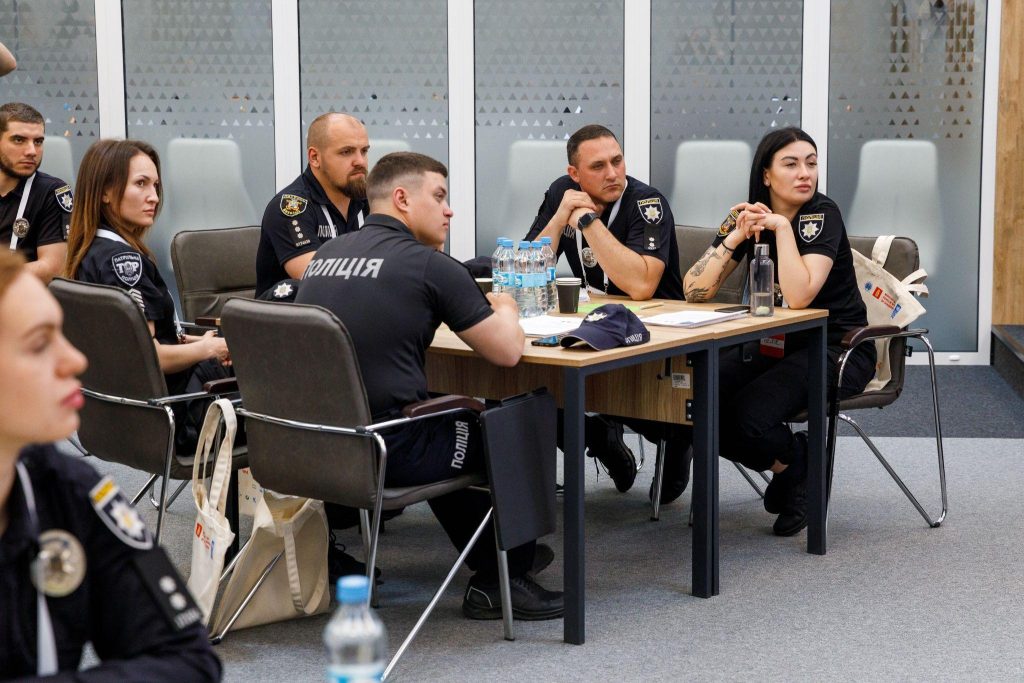
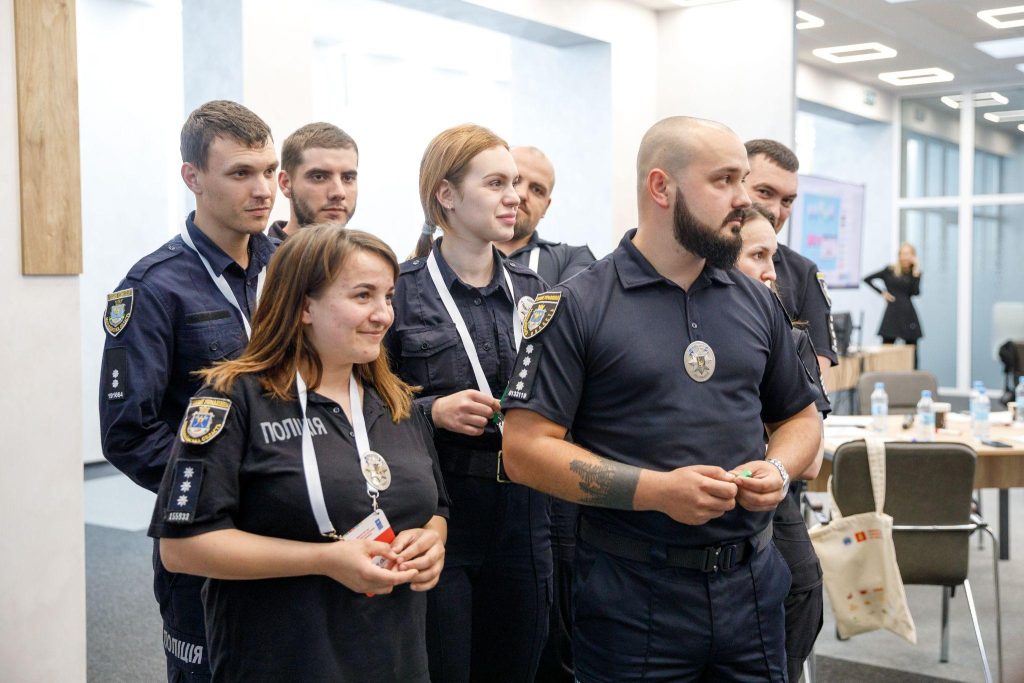
The practical part included group work, case studies, interactive exercises, and reflective sessions.
— 311


